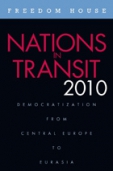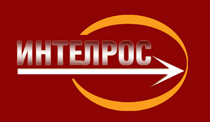
Nations in Transit 2010

Freedom House’s Annual Survey Nations in Transit (NIT) tracks democratic developments and setbacks of 29 countries in the former Communist states of Europe and Eurasia. The 2010 report - covering events of 2009 - observes a continuing worrying regional trend with more than half of the countries backsliding in democratic reforms, or continuing on a dangerous trajectory towards authoritarian governance. Declines in the independent media were most numerous in 2009, including declines in five new EU member states. Furthermore, with the grave situation for defenders of human rights and democracy growing worse in 2009, Nations in Transit findings show that over the past decade, Russia has undergone the largest decline of any country in the study.
Table of Contents
2010 Summary
Nations in Transit 2010 is the 14th edition of Freedom House’s comprehensive, comparative study of democratic development in 29 countries from Central Europe to Eurasia. The overarching conclusion is that 2009 was a year of broad, cross-regional pressures on democratic developments: scores declined for 14 of the 29 countries. Six new EU member states, a number of which confronted rising nationalism, experienced declines, while one experienced gains. In the non-Baltic former Soviet Union, the ratings for six countries eroded, and one improved. And, in the Balkans, three countries improved and two saw their scores regress. The downward trends in national democratic governance, judicial framework and independence, electoral process and corruption noted in previous editions remained a concern in 2009. Most worrying, however, is the increased number of rating declines for independent media: 10 countries regressed in media independence in 2009, half of those in new EU member states
In 2009 Kyrgyzstan experienced a wave of attacks against independent journalists and a decrease in the ability of news media to criticize government policies. Kazakhstan failed to liberalize its media law in keeping with its commitments to the Organization for Security and Cooperation in Europe (OSCE), and the use of libel suits to punish investigative journalists continued to mar the country’s record on press freedom. In new EU member states political pressure, harassment of journalists, and corruption were widely noted in 2009. In Serbia, hastily adopted legislation that may weaken the independence of the media raised concerns of increased self-censorship and pressure on journalists. While in Montenegro, public attacks against media figures were also taken to the legal system where disproportionate fines put additional pressure on the media. A number of countries also saw an increase in restrictions on Internet freedom. In both Kazakhstan and Kyrgyzstan, the government crafted legislation classifying Web sites as mass media outlets, exposing them to the same restrictions that already applied to traditional media. During protests and police violence that followed Moldova’s contentious election in April 2009, the government blocked a number of Web sites, with a particular focus on social-networking sites. While Russia’s Internet generally retains a good deal of openness, on several fronts the authorities are insinuating themselves into the medium. The effort includes the acquisition of blogging platforms and popular Web sites by Kremlin-friendly companies and the emergence of commentators and provocateurs who subvert online discourse.
Press release
|
|



